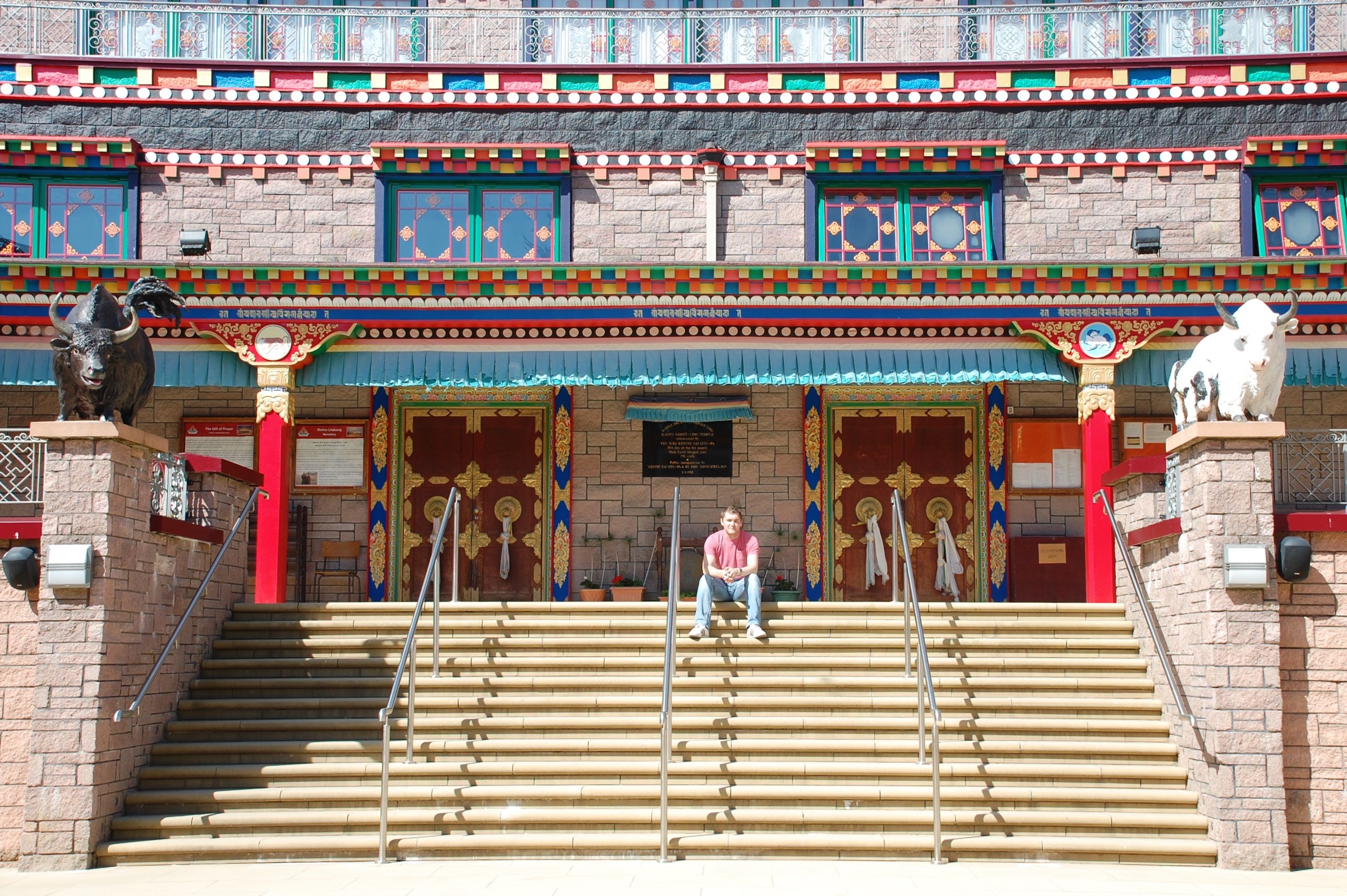Welcome home! Please contact lincoln@icrontic.com if you have any difficulty logging in or using the site. New registrations must be manually approved which may take several days. Can't log in? Try clearing your browser's cookies.
Kagyu Samye Ling
 Lee82
Veteran
Lee82
Veteran
Hey, I got a chance today to visit Kagyu Samye Ling Monastery in Scotland. What an incredible place; so remote, peaceful and beautiful. I would highly recommend making the trip to anyone in the UK. We had tea in the Tibetan tea rooms, walked around the peace gardens and visited the temple. Unfortunately it was only a brief visit but they also do courses and residentials; perhaps another time.

9








Comments
Thanks for sharing. Done a few courses there myself.
http://www.samyeling.org/courses/
For anybody with experience of living there for more than a few days as a layperson, what is the routine like? Such as group meditation, chores, meals etc. Would it be reasonable to expect to get a flavour of Tibetan Buddhism from say, a month long stay? My guess is that it's less integrated than a Zen or even Theravada monastery.
@kentonite the daily routine changes.
When I was there the formal Temple practice was Tara in the morning before breakfast and Chenrezig before supper. These are usually led by a senior monk or nun.
Everyone is assigned chores for example cooking, dishwashing, cleaning, office work, gardening - whatever. On a short course of a week, you might have to spend two hours for the whole week helping with moping the kitchen and dining areas. You can volunteer to do more.
Three meals a day. Vegetarian. Extra food in tea room and shop.
Then you have any course classes.
If you are a long term resident, you can attend any classes if initiated.
The temple is only shut from about midnight to 4/5am and the first section, to the left but not in the pic, is usually quieter and for practice of prostrations, private meditation.
It is best to go for a weekend or week before a whole month. In fact regular top ups are a good option ... Get a private, rather than a shared room if you can afford it. This ensures you do not have to put up with strange wer-lobsters or similar weirdos.
Hope that helps.
Just email or phone reception and ask if any questions ...
Good idea, some of these Boodists are a little odd.
Thanks @lobster, very insightful. There were a few people gardening and cleaning the block paving when I visited, and of course those working in the tea rooms and shop.
Sorry to dig up an old thread but...
The new online intake for the 3-year course run by Kagyu Samye Ling is currently open and I’m seriously thinking of enrolling. http://www.calm-and-clear.eu/nangiintro.html#signing
Thought this may be of interest to some people here.
I haven’t managed to make it back to the monastery since my last visit but it’s on my list of things to do once normality resumes, whenever and whatever new normal is!
I see it’s a distance learning course consisting of monthly email packs, with an expected study time of 6-10 hours per month... I’m somewhat tempted to sign up. I have already done a few of these kinds of courses though, I will consider it.
Aha! Interesting: I'd forgotten I posted here. In fact I ended up spending 4 months here. I was there for a weekend and about to leave when somebody mentioned about volunteering… I've since spent two years in Zen monasteries and am looking to try Tibetan again. In fact it was four months of work and meditation and whatnot and I didn't come away with a very clear idea of the way forward. But now I'm in France and travel isn't so simple (currently confined to the house) while there is quite a choice of different monasteries. In Scotland your lucky: Samye Ling is where it's at.
It’s the cost that’s holding me back, not that it’s a lot of money, but that I always try not to spend money on things that are not essential. Taking part in the course feels like personal indulgence when I could just practice and read books I already have. I know a course would give me focus but the very idea of paying money to take part in the course goes against the idea of practicing for me.
Help me out here, is my thought process unreasonable?
Some would say the Dhamma should be free.
But not everyone is in a position to do this (particularly the Tibetans).
Sorry mate, you're on your own with this one. Either way, the decision will be the correct one.
Well, I have to say I have done a buddhism course and I found it really good, well worth the small sum. But that was a course in person, with close contact with a monk and weekly opportunity to ask questions. It was also only two semesters.
So I’m forced to go with @bunks’ answer, only you know whether it’s worth it to you. Three years sounds like it is quite a lot of material, a lot of which is bound to be specific to Kagyu and hard to find out elsewhere.
I don't see the logic of how paying money goes against the idea of practicing.
Obviously face to face contact with a teacher is the best. Books can contain great information but what you'll get out of them and your choice of books are necessarily twisted by your own point of views.
The course looks like a good A to Z of the path. After three years you would likely have a good idea of how to go about practising. Perhaps the books you have would not even get you that far. An alternative would be to go down to your local Kagyu Samye Dzong on a regular basis and see what happens. If that's impossible due to the virus situation or you can't travel and you have a stable situation forseen for three years then why not?
But if you already have a practice what's the point in studying?